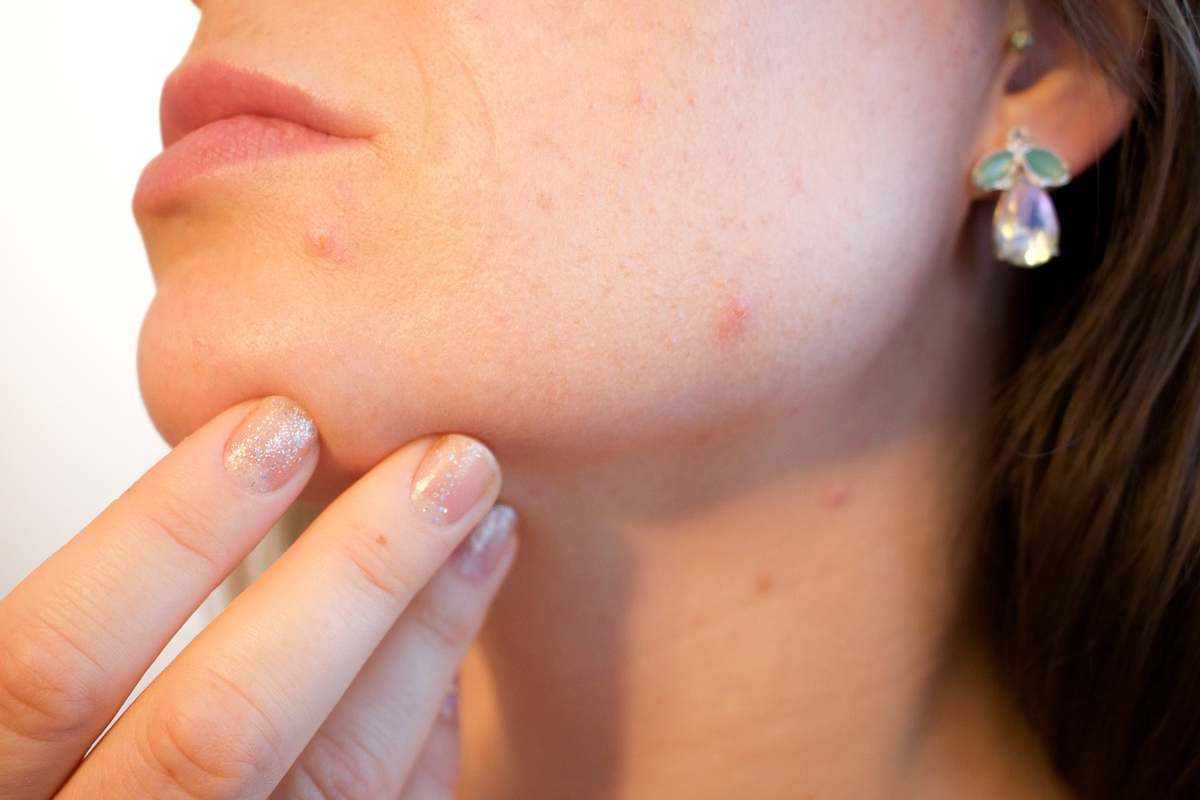Acne : Causes & Treatment

Acne is a common skin disease caused by the inflammation of sebaceous glands, resulting in the eruption of comedones and pimples on the face, chest, back, and shoulders. It is mainly due to the clogging of hair follicles with oil, bacteria, and dead skin cells. It may cause emotional stress, especially in teenagers.
Generally, acne begins in puberty and worsens during adolescence. Often, acne blemishes heal very slowly, but advanced and effective treatments are available. If treatment is early, acne can be treated completely, without any scars.
Three main factors cause acne:
- Excessive oil production
- Accumulation of dead cells results in the clogging of hair follicles
- Growth of bacterial
An oily substance called sebum is secreted by the sebaceous glands under the skin to lubricate skin and hair. Normally, this sebum travels through the hair shafts to the follicles and then reaches the skin surface. When the sebum and dead cells are produced in excess amounts, they get clogged up in the hair follicles, resulting in the growth of bacteria.
The follicle wall then blocks, and this results in the formation of white heads. Sometimes, the pug may reach the surface and darkens to form blackheads. The infected hair follicles may lead to pimples. In a few cases, lumps form beneath the skin, due to inflammation and clogging of the pores, which leads to the formation of a cyst. Acne may also worsen due to other factors like hormones, diet, and medications.
Risk Factors
- Being a Teenager
- Pregnancy
- Upcoming menstrual period
- Usage of some medications like corticosteroids, lithium, and androgens
- Certain cosmetics (greasy and oily substances)
- Heredity
- Frequent use of helmets and tight collars.
Home Remedies:
Affected areas have to be cleaned with a mild cleanser. Some products, like astringent and scrubs, can be dangerous. For many with sensitive skin, they only irritate the skin and increase acne. Overwashing must be avoided too, as it may irritate skin or cause your skin to overcompensate and become more oily than it was, to begin with. If acne develops around your hairline, shampooing regularly is recommended, although a mild shampoo is preferred. Lastly, when choosing a face wash, use products that remove excess oil and support peeling. Products that contain salicylic acid and benzyl peroxide are especially good for this.
Oily, greasy cosmetics must be avoided. Sunscreens and some hairstyling products may also trigger acne, so be sure to ask a physician about any risky products you think may be harming you. Hence, non-comedogenic and water-based products are preferred. For some people, acne may get worse when in the sun, so these people are urged to use sunscreen that does not clog pores, and it is best to avoid exposure to the sun as much as possible.
Also, it is always good to keep your hands clean and away from your face. Avoid placing your hands on your skin, and using cell phones for long periods of time. If you sweat a lot, avoid tight clothing, backpacks, and hats, as sweat aggravates the problem. NEVER squeeze blemishes. They are the biggest cause of scarring, and the easiest to avoid.
Also Read: Top Skin Care Tips for Glowing Skin in the Summer
Medication
Acne can mainly be treated by increasing skin cell production, reducing oil production, and suppressing bacterial growth. Always consult a doctor before using any medications and ointments. Also, bear in mind that results may not be seen for 4 to 8 weeks. Initially, when using medications, a condition can worsen before getting better, but patience is needed. Over-the-counter medications are also available for less severe conditions. Some of them are lotions that contain benzyl peroxide, resorcinol, Sulfur, and salicylic acid.
These are very mild and do not have any side effects. In the case of severe conditions, the doctor may advise antibiotics, oral contraceptives, laser therapy, or sometimes cosmetic procedures. Scars can be treated by chemical peels, soft tissue fillers, dermabrasion, microdermabrasion, laser therapy, radio frequency treatments, and minor skin surgery.
All of these vary in cost and ease, so it’s wise to really think things through and perhaps consult with more than one specialist before going through with any one treatment.